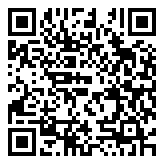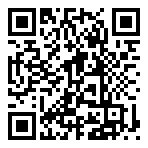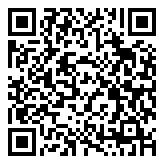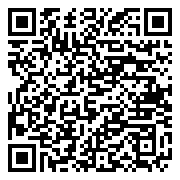Columbia University was founded in 1754 as King’s College by royal charter of King George II of England. It is the oldest institution of higher learning in the state of New York and the fifth oldest in the United States. After residing at two locations for nearly a century and a half, the University moved to Morningside Heights in 1897.
Columbia is one of the top academic and research institutions in the world, encompassing 17 schools with more than 25,000 students and 2,000 international faculty. Eighty Columbians—alumni, faculty, researchers, and administrators—have won Nobel Prizes. Furthermore, eight current faculty members are Nobel laureates in medicine, economics, physics, and literature. Columbians daily continue to conduct path breaking research in medicine, science, law, business, the arts, and the humanities.
The University’s Mission Statement: “Columbia University is one of the world’s most important centers of research and at the same time a distinctive and distinguished learning environment for undergraduates and graduate students in many scholarly and professional fields. The University recognizes the importance of its location in New York City and seeks to link its research and teaching to the vast resources of a great metropolis. It seeks to attract a diverse and international faculty and student body, to support research and teaching on global issues, and to create academic relationships with many countries and regions. It expects all areas of the university to advance knowledge and learning at the highest level and to convey the products of its efforts to the world.”
213 Low Library
2960 Broadway
New York, NY 10027
Telephone: 212-854-4900
Website: columbia.edu
Columbia University News
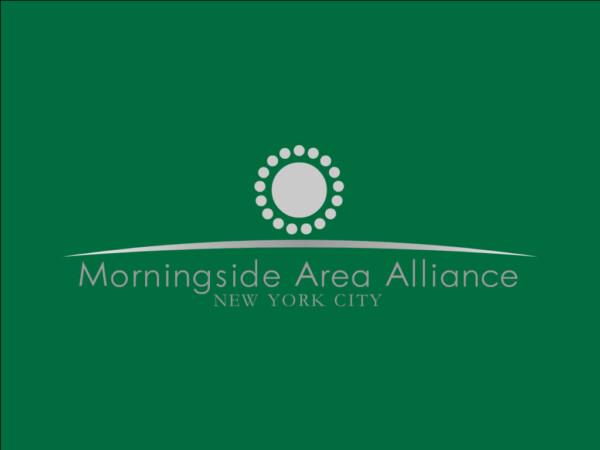
Statement from Columbia University President Minouche Shafik
Dear fellow members of the Columbia community, Our University is committed to four core principles, which underpin all of our work and our shared values

Statement From David Greenwald, Claire Shipman, Minouche Shafik, and Angela Olinto
Dear fellow members of the Columbia Community, Throughout this very challenging year, we have adhered to a simple goal: to continue our academic mission while

Statement from Columbia University President Minouche Shafik
Dear Members of the Columbia Community, I am deeply saddened by what is happening on our campus. Our bonds as a community have been severely
Columbia University Events
ColumbiaDoctors at Haven Plaza Farmers Market: Heartbeat Heroes

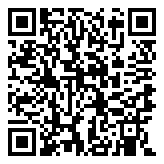
Venue
- Haven Plaza
- Haven Avenue between Fort Washington Avenue and 169th Street
TICKETS/REGISTER LINK
Presented by ColumbiaDoctors Outreach, jump-start your cardiovascular health with free blood pressure checks, and learn how diet, exercise, and stress reduction can keep your heart strong.
Literature of & after the Vietnam War: 50 Years of Peace & Conflict
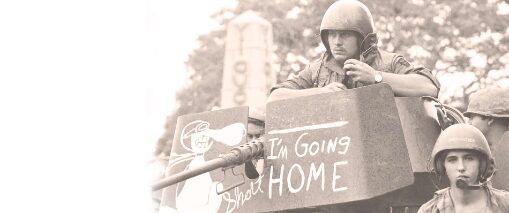
This informal seminar is open to all Columbia affiliates and neighbors and will meet:
Wednesdays, July 16, 23, 30, and August 6, 5:30 – 7 p.m. Refreshments will be served.
Note: Separate registration required for each session.
The war that seemed half a world away suddenly felt very close. Daily, news of the devastation beamed directly to viewers around the world, a horror impossible to ignore as it unfolded in real-time. Columbia’s campus, unable to ignore the suffering abroad and its nation’s involvement, rose in anger—at the war and, at times, seemingly at itself. US involvement in the Vietnam War ended 50 years ago this year. The consequences of that war—for the Vietnamese people, US and Vietnamese combat veterans, and society—linger. At home, the war brought new forms of protest to campuses across the country. In many ways, we live, work, and study on a campus shaped by war. This seminar considers the literature of and related to the US war in Vietnam. How might literary engagements with this earlier moment of conflict help us navigate the current day with passion and empathy?
16 July: Introductions & Literature of the War
- Graham Greene, from The Quiet American (1955)
- Tim O’Brien, “On the Rainy River” from The Things They Carried (1990)
- Dang Thuy Tram, from Last Night I Dreamed of Peace: the Diary of Dang Thuy Tram (2005)
- Apocalypse Now, dir. Coppola (1979)
23 July: Protest! Literature Against the War
- Norman Mailer, from The Armies of the Night (1968)
- Wallace Terry, from Bloods: An Oral History of the Vietnam War by Black Veterans (1984)
- Simon Wall, from Peace and Freedom: The Civil Rights and Antiwar Movements in the 1960s (2006)
30 July: After War and Reflections
- Viet Thanh Nguyen, from Nothing Ever Dies (2016) and The Sympathizer (2015)
- Tobias Wolff, from In Pharaoh’s Army: Memories of the Lost War (1994)
- “Watt Raises Obstacle on Vietnam Memorial,” New York Times (13 Jan. 1982)
- “Goodbye, Farewell and Amen,” the finale to M*A*S*H (1983)
6 Aug: How does the Vietnam experience continue to shape campus culture?
- Bill Chappell, “In Columbia University’s protests of 1968 and 2024, what’s similar—and different,” NPR (29 Apr. 2024).
- Columbia College Student Council, “We Columbia University Students Urge You to Listen to Our Voices” (4 May 2024).
- Mansee Khurana, “What a 1968 Columbia Protestor Makes of Today’s Encampment,” NPR (29 Apr. 2024).
We will distribute the reading selections over email and bring hardcopies to class. There is no requirement to buy anything. We’ll start each seminar with a brief introduction, followed by some time to review/read the texts in focus. The bulk of our time will then be spent in guided conversation.
About the Instructor: Nick Utzig is assistant professor of English in the Dept. of English and World Languages at West Point. He received his PhD from Harvard University, where his research focused on representations of war in English Renaissance literature. His scholarly work appears in Shakespeare Studies, Shakespeare Bulletin, and The Journal of War and Culture Studies. Before his PhD, Nick was a US Army aviation officer and served in Afghanistan and Iraq.
The Exposome Boot Camp
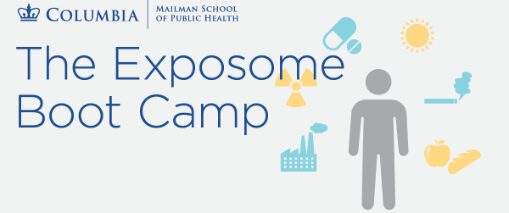
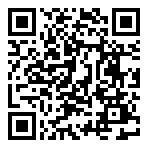
Venue
- Allan Rosenfield Building
- 722 W. 168 St., New York, NY 10032
Category
TICKETS/REGISTER LINK
July 17-18, 2025 | In-person training
The Exposome Boot Camp is a two-day intensive boot camp of seminars and hands-on analytical sessions to provide an overview of concepts, techniques, and data analysis methods used in studies of the exposome.
This two-day intensive boot camp integrates the principle concepts of exposomics and the untargeted approaches of measuring endogenous and exogenous chemical exposures on an omic scale as we step through the tools and techniques currently available to analyze the exposome. Led by a team of expert scientists in the rapidly growing field of exposomics, the boot camp will integrate seminar lectures with hands-on computer lab sessions to put concepts into practice. Emphasis will be given to leveraging existing resources from ongoing studies and initiating new investigations. The afternoon lab sessions will provide an opportunity to work hands-on with real data. Participants will learn and practice data handling, cleaning, and basic analysis of exposomics data.
By the end of the workshop, participants will be familiar with the following topics:
- Principles of exposomics
- Concept ideation and study design
- Laboratory methods and instrumentation platforms for analysis
- Data extraction and cleaning with emphasis on peaks and feature tables
- Pathway data analysis and identification databases
- Data visualization and network interpretation
- Study design advantages and pitfalls
- Emerging exposomic topics and laboratory platforms
AUDIENCE AND REQUIREMENTS
Investigators at all career stages are welcome to attend, and we particularly encourage trainees and early-stage investigators to participate.
This training is designed to accommodate investigators with varying experience levels in R. Knowing R basics is beneficial to maximize training from the boot camp, but is not necessary for you to strongly engage with training material. Data labs will be offered during the training and are meant to accommodate both beginner and advanced data manipulation, with all material and additional resources available after the training. There are four requirements to attend this training:
- Each participant must have an introductory background in statistics.
- Each participant is required to have a personal laptop. If you would like to participate in the asynchronous, hands-on data labs offered by the Boot Camp, you will need to have R downloaded and installed as all lab sessions will be done on your personal laptop. R is available for free download and installation on Mac, PC, and Linux devices.
- The Boot Camp will provide lab tutorials with data sets in R, therefore we recommend participants have a basic understanding of this platform prior to attending the Boot Camp to get the most out of lab sessions. R knowledge is not required if you do not plan to participate in lab sessions. If you have not used this platform before, step through the tutorials outlined below so you have the basic skills needed for Boot Camp success.
ADDITIONAL INFORMATION
- Subscribe for updates on new Boot Camp details and registration deadlines.
- Contact the Boot Camp team.
Capacity is limited. Paid registration is required to attend.
Radiation Safety Officer (RSO) Training
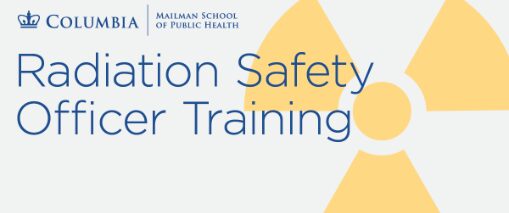
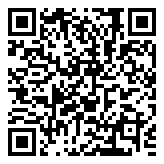
Venue
- Allan Rosenfield Building
- 722 W. 168 St., New York, NY 10032
Category
TICKETS/REGISTER LINK
July 18-20 & July 25-27, 2025
Join us for two long weekends for the required 40 hours of training to become a Radiation Safety Officer (RSO)! This course meets the coursework training requirement for a Nuclear Regulatory Commission (NRC) type C license, providing the skills needed to successfully implement a radiation protection program in the pharmaceutical, biotechnology, university, hospital, or medical laboratory setting.
The NRC requires any organization that uses radioactive material to have a licensed, designated Radiation Safety Officer (RSO). This course is designed to help such organizations apply for or renew their license for use of radioactive materials. The course is not intended to meet the licensing requirements for medical use of radionuclides or fluoroscopic imaging.
Course instructors, with faculty appointments at Columbia University and the Columbia University Medical Center, are experts in their fields. They include faculty from the Center for Radiological Research, the Department of Environmental Health Sciences, the Department of Medicine and the Department of Environmental Health & Safety. Learn more about the course instructors here.
Course Topics
- Radiation and radioisotopes
- The human health effects of ionizing radiation exposure
- Radiation dosimetry and instrumentation
- Radiation protection
- Safe handling and disposal of radioisotopes
- Inventory control
- Record keeping and regulatory requirements
- Transportation of radioactive materials
- Hazard and risk assessment, reduction, and communication
- Employee bioassay program
- Emergency management, personnel contamination, and response
Course Learning Objectives
- Develop RSO skill sets specific to University, Hospital, Medical, Health Department, Governmental or Biopharmaceutical lab environments
- Gain expertise in maintaining compliance with radionuclide permit and licensing requirements at local, state and national levels
- Create and maintain a safe laboratory working environment
- Assess potential radiation risks and relevant human health effects
- Develop work plan for employees to effectively reduce or eliminate risk
- Limit potential for radiological terrorism using laboratory materials
- Understand and apply Health Physics practice in a laboratory setting
- Learn management of radiological solid and liquid waste
- Understand regulatory requirements and expectations
- Gain hands-on experience with instrumentation
- Apply “tools of the trade” upon returning to your organization, with a comprehensive resource guide
Additional Information
- Subscribe for updates on new RSO Training details and regsitration deadlines.
- Contact Dr. Norman Kleiman, the director of the RSO Training Course.
Capacity is limited. Paid registration is required to attend.
ColumbiaDoctors at Haven Plaza Farmers Market: Breathe Easy

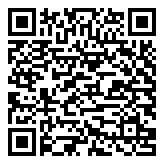
Venue
- Haven Plaza
- Haven Avenue between Fort Washington Avenue and 169th Street
TICKETS/REGISTER LINK
Presented by ColumbiaDoctors Outreach, anti-smoking workshops and air quality education take center stage. Learn how to protect your respiratory health.
Data, Designed Workshop
Online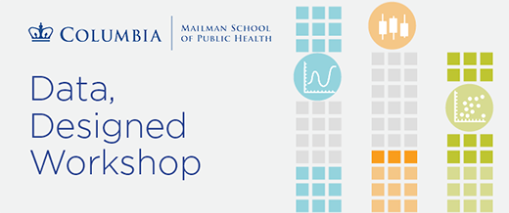
The Data, Designed Workshop is a two-day intensive hands-on workshop designed for people and teams who want to develop their creative process to create better, more effective data visualizations.
Bring your data to life using innovative visualization techniques in this workshop unlike any other, and learn from world leaders that come from two sides of data visualization: data science and design. Explore styles, techniques, and best practices to create meaningful and beautiful visualizations.
As the amount and speed of data grows at ever-increasing rates, being able to visualize and communicate data and data analysis has become more and more important. Organizations that are tasked with producing, releasing, and analyzing large amounts of data can more effectively do so by understanding how to visualize their data. In this workshop, you will learn the important underpinnings of the science and design process behind data visualization and how to effectively communicate your work.
This workshop will provide you with the core skills needed to conceptualize, plan, and develop data visualization products. Taught by world-renowned leaders in the field—Stefanie Posavec and Jonathan Schwabish—this workshop will inspire you to push beyond your own limits so you can create great, effective visualizations. Step away from your keyboard and enjoy some fresh space for your hands and mind: the entire workshop will taught using nothing more than basic drawing materials and office supplies.
By the end of the workshop, participants will be familiar with the following topics:
- Be familiar with different kinds of data visualizations
- Identify the different forms and functions of visualizations
- Learn, and exchange ideas about, visualization best practices
- Learn how to increase message clarity and impact
- Learn the basic data analysis skills one needs as a data visualizer
- Understand the data visualization design process
- Explore how to create their own custom data visualization system
- Have a starting point for applying data visualization in their own work
Audience and Requirements
View Requirements for this training
Additional Information
- Subscribe for updates on new training details and registration deadlines.
- Contact the Workshop team.
Capacity is limited. Paid registration is required to attend.
Overview of the US Healthcare System

The Center for Health Policy invites you to attend the second in a three-part Health Policy 101 series. In this second installment, Dr. Monica O’Reilly Jacob will provide an overview of the US healthcare system.
You can register here: columbiacuimc.zoom.us/meeting/register/Yuq8VC2rQbugph3HdGmdNA#/registration
Environmental Mixtures Workshop
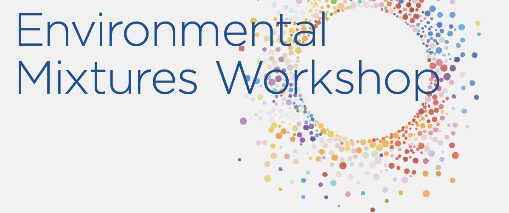
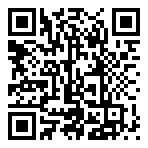
Venue
- Allan Rosenfield Building
- 722 W. 168 St., New York, NY 10032
Category
TICKETS/REGISTER LINK
The Environmental Mixtures Workshop is a two-day intensive training of seminars and hands-on analytical sessions to provide an overview of environmental mixtures concepts, techniques, and data analysis methods used in health studies.
This two-day intensive workshop will provide a rigorous introduction to multiple different techniques to analyze exposure to mixtures in environmental health. Led by a team of world experts in environmental health, epidemiology and statistics, many of whom have developed their own methods to analyze exposure to mixtures, the workshop will integrate seminar lectures with hands-on computer lab sessions to put concepts into practice. Emphasis will be given to supervised and unsupervised methods. Since the choice of method depends on the research question at hand, the workshop will conclude with a panel discussion on when each method presented is appropriate for use and for which research questions.
By the end of the workshop, participants will be familiar with the following topics:
- Principal Component Analysis (PCA)
- Factor Analysis (FA)
- Clustering
- Variable Selection (Lasso, elastic net)
- Bayesian Kernel (BKMR)
- Weighted Quantile Sum Regression (WQS)
- Emerging mixtures topics and novel extensions
- Tree-based methods
Audience and Requirements
Investigators at all career stages are welcome to attend, and we particularly encourage trainees and early-stage investigators to participate. There are three requirements to attend this workshop:
- Each participant must have an introductory background in statistics.
- Each participant must be familiar with R.
- Each participant is required to have a personal laptop/computer and a free, basic Posit Cloud (formerly RStudio Cloud) account. All lab sessions will be done using Posit Cloud (formerly RStudio Cloud).
Additional Information
- Subscribe for updates on new Boot Camp details and registration deadlines.
- Contact the Boot Camp team.
Capacity is limited. Paid registration is required to attend.
Python Data Wrangling Boot Camp
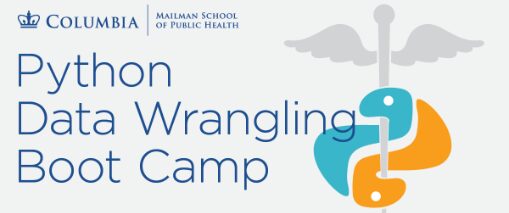
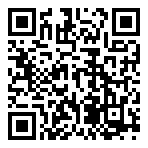
Venue
- Allan Rosenfield Building
- 722 W. 168 St., New York, NY 10032
Category
TICKETS/REGISTER LINK
The Python Data Wrangling Boot Camp is a two-day intensive course that combines concept-focused seminars with hands-on exercises pairing Python fundamentals with practical data wrangling and analysis.
This two-day course will provide an introduction to the python programming language and demonstrate how it can be used to do essential data wrangling, manipulation and cleaning tasks using real-world biomedical data. Bringing together scalable methods and popular libraries for data manipulation, basic statistical analysis and visualization, this boot camp will provide participants with all the necessary tools and background for getting started with Python for data work. Through hosted notebooks, participants will leave the workshop with functioning code that they can then apply to their own data sets. Participants will receive orienting videos before the real-time sessions so they can familiarize themselves with the Jupyter Notebook/Google Colab environment; all code samples will be available in this format for participant use.
By the end of the workshop, participants will be able to:
- Load and explore data sets in Python
- Join, reconcile and otherwise clean up messy data sets
- Do basic statistical analyses, including linear and logistic regression
- Render exploratory visualizations
Audience and Requirements
Investigators from any institution and from all career stages are welcome to attend, and we particularly encourage trainees and early-stage investigators to participate.
No prior programming experience is required to participate in this workshop. However, participants must have (or create) an unrestricted Google account for working with sample notebooks (via Google Colab) and data sets. Likewise, participants will be expected to complete a brief survey and watch up to 3 hours of pre-recorded introductory material before the start of the real-time workshop activities.
Instructor
Training Director: Susan McGregor, Associate Research Scholar, Columbia University Data Science Institute (DSI).
Additional Information
- Subscribe for updates on new Python Data Wrangling Boot Camp details and registration deadlines.
- Contact the Python Data Wrangling Boot Camp team.
Capacity is limited. Paid registration is required to attend.
Powerful Presentations Workshop: Designing and Delivering for Impact
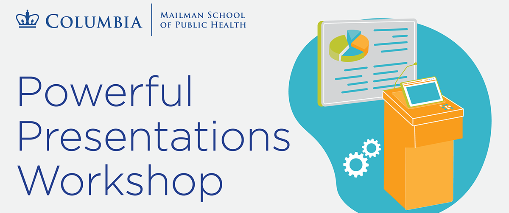
July 28-29, 2025 | Livestream, virtual training
The Powerful Presentations Workshop is a two-day intensive workshop of lecture and hands-on work to provide an overview of concepts, techniques, and methods used to create effective, memorable presentations.
This workshop is divided into three main parts to guide attendees’ process from presentation conceptualization, to creation, to delivery. The first part focuses on planning the presentation; instead of booting up the computer and immediately inserting text, graphs, and images onto slides, attendees are presented with a process for outlining the content of their presentation. The second part is about building the presentation: how to create more effective text, graph, and image slides. The final section moves to the practical details of giving the presentation.
By the end of the workshop, participants will be familiar with the following topics:
- Learn how to increase message clarity and impact through better slide design
- Improve presentations to more effectively communicate data and analysis
- Learn, and exchange ideas about, presentation best practices
- Think critically about presentation slide design
Audience and Requirements
This course is for anyone interested in being a better, more effective, and more persuasive presenter. Participants should have the Microsoft PowerPoint software program installed on their computer. The workshop will help attendees develop, design, and deliver better presentations including:
- People working with and analyzing data including analysts, researchers, data scientists, and data engineers who are interested in improving how they present their work.
- Communication designers and other creatives looking to expand their communication design skillset.
Additional Information
- Subscribe for updates on new training details and registration deadlines.
- Contact the Workshop team.
Capacity is limited. Paid registration is required to attend.
ColumbiaDoctors at Haven Plaza Farmers Market: Breast Cancer
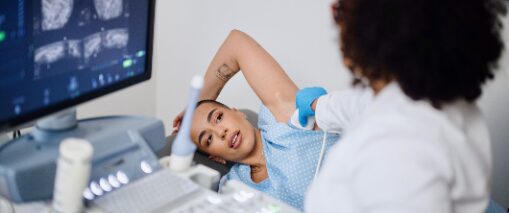
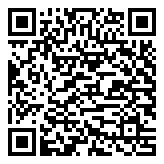
Venue
- Haven Plaza
- Haven Avenue between Fort Washington Avenue and 169th Street
TICKETS/REGISTER LINK
Presented by ColumbiaDoctors Outreach, celebrate survivorship with self-exam tutorials, mammogram access resources, and more.
ColumbiaDoctors at Haven Plaza Farmers Market: Mind Matters

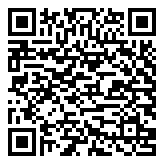
Venue
- Haven Plaza
- Haven Avenue between Fort Washington Avenue and 169th Street
TICKETS/REGISTER LINK
Presented by ColumbiaDoctors Outreach, discover brain-healthy nutrition, memory-enhancing exercises, and stress-reduction techniques.


